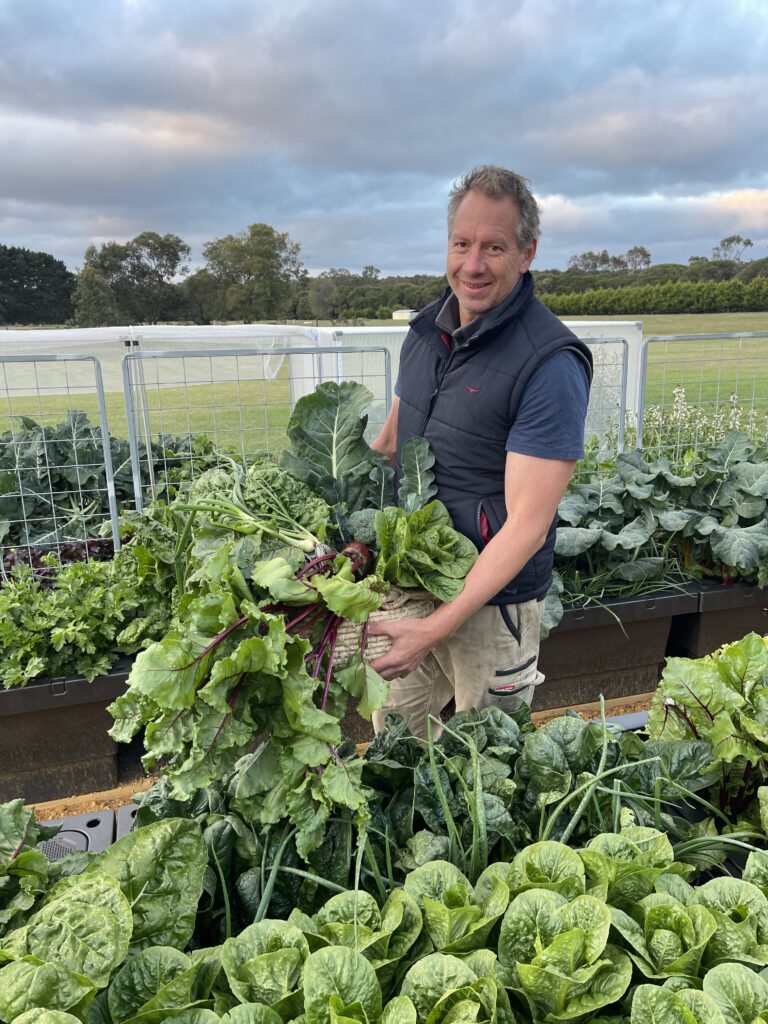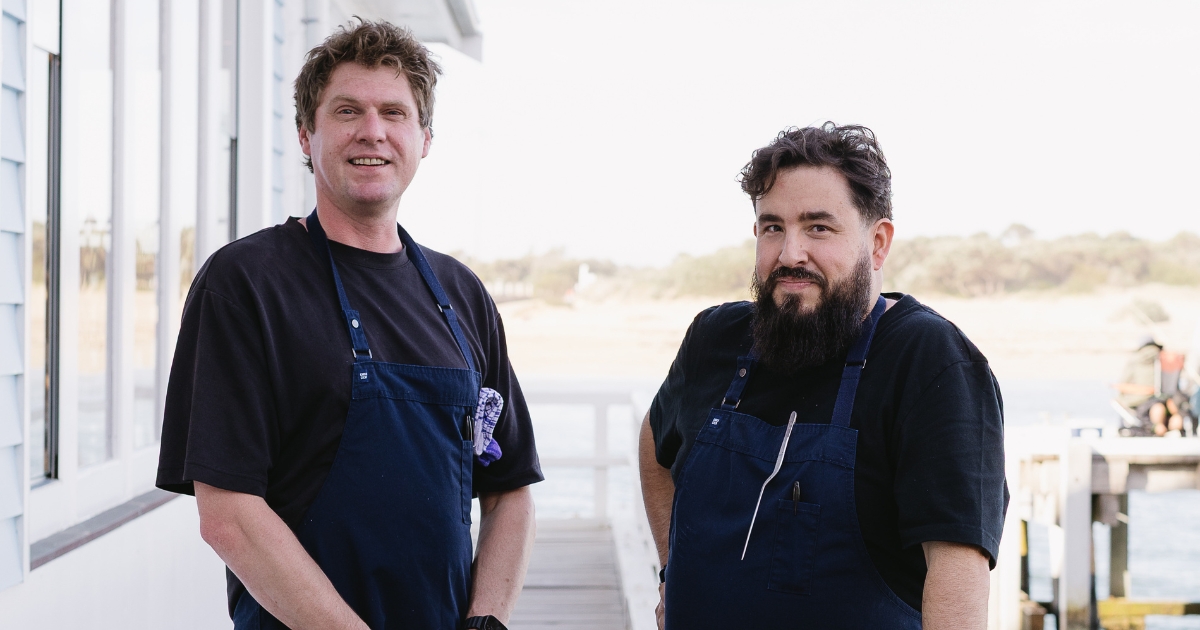You are what you eat

Peter Condon said his urban garden has reduced the cost of food bills and enriched his family's diet. Photos: SUPPLIED
A Surf Coast-based father of four has constructed an urban garden on his property in Wensleydale to help reduce the cost of grocery bills and teach his family about sustainable living practices.
The edible garden now keeps Peter Condon’s family supplied with an impressive array of crops, spanning from rainbow chard and beetroot to spring onions and a variety of herbs.
“With the way cost-of-living has gone and the price supermarkets are charging for vegetables these days, I just thought, why not do it at home?” Condon said.
“The prices are astronomical to feed a family now and you’ve just got to start focusing on this kind of sustainable living because the way things are going, it’s just getting way too expensive.”
Condon’s children – aged 16, 14, 12 and 9 – all contribute to the upkeep of the garden, helping to plan out which vegetables to grow.
He said being able to provide his family with ongoing access to fresh, organic vegetables free from chemicals had been one of the biggest benefits of installing an edible garden.

“With four kids… you can’t always afford to go organic on everything because it’s so expensive.
“You are what you eat and it’s in your own interest to try to eat as healthy as you can, and organic is right on the top of the list for that.”
Condon’s set up is comprised of a dozen “Foodcube'” wicking beds, a low-tech gardening solution designed by his brother Brendan.
Inspiration for the gardening beds came from looming climate change-related food insecurity and shrinking backyards.
The aim is to help turn underused areas into productive and low maintenance urban gardens, creating food production solutions for communities.
The design has become known for its water efficiency and rapid food production and has already been adopted by a growing number of public gardens, including the Fitzroy Gardens and Birrarung Marr gardens in Melbourne, as well as local councils and schools.
In Wensleydale, Condon’s edible garden has quickly grown to become a community garden.
“We had neighbours coming across and helping themselves because there was just so much of it. We couldn’t eat it all.
“There’s good communal stuff going on, and it should be promoted in little communities like this to really get to know your neighbours and get on well with them and help each other out.
“That’s what I’m all about.”

















